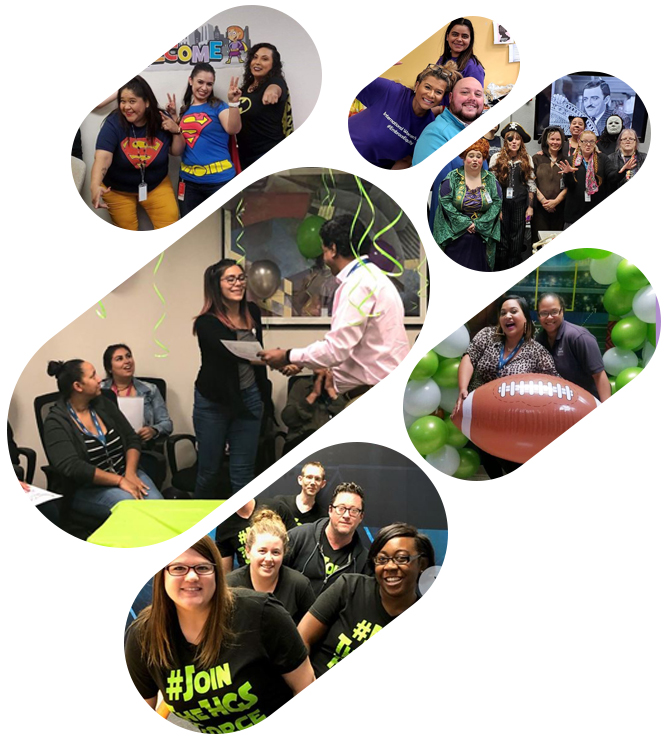Regardless of your role or level of experience, criticism in the workplace is unavoidable. Although it may be uncomfortable at first, mastering the art of “how to handle criticism at work” can be a breakthrough skill that increases your confidence, enhances your emotional intelligence, and improves your professional skills. Instead of taking it personally, well-delivered criticism can be a guiding force for improvement.
In this blog, we'll explore how to view criticism as a positive force rather than a personal attack. You'll discover real-world strategies on how not to take criticism personally, respond professionally, develop from criticism, and have stronger workplace relationships.
Practical Tips for Accepting Criticism
Whether you are new to the workforce or an experienced professional, your ability to accept criticism in the workplace graciously is key to long-term success. Here's how to do it correctly.

Shift Your Perspective: Feedback is a Tool, Not a Threat
The initial step in accepting constructive criticism in the workplace is to recognize the intention behind it. Criticism, negative as it may be, is seldom meant as a judgment of your character. Instead, it is an expression of how your work compares to team or organizational objectives.
Rather than viewing feedback as a failure, consider it an opportunity for fine-tuning. For instance, when a manager refers to constant delays in project submission, take it as an indication to reassess your time management skills rather than as a personal failure.
Listen Actively Without Getting Defensive
It's easy to feel the urge to explain yourself or justify your actions when someone criticizes your work. But defensiveness can stifle an open-ended conversation.
Instead, remain present. Maintain eye contact, nod your head to indicate understanding, and refrain from interrupting. By listening fully, not only do you demonstrate maturity, but you also give yourself room to process comments logically rather than emotionally.
This also sets the tone for respectful, open communication, a crucial skill in dealing with criticism at work.

Ask for Clarification, Not Justification
Real-life criticism at work examples can help you understand how to apply these strategies effectively. When this is the case, ask for clarity, not to argue, but to gain a better understanding.
For example, rather than commenting, "I don't think that's fair," try asking, "Can you provide an example of how I might do better next time?" This indicates that you're willing to improve and keep the conversation centered on practical solutions.
This method is beneficial for responding to criticism at work without escalating conflict.
Manage Emotional Triggers Mindfully
Strong reactions—shame, anger, or anxiety—are natural but must be controlled. The better you become at separating criticism from your self-worth, the more constructively you’ll respond.
If you feel overwhelmed, it's alright to say, "I appreciate the feedback. Can I take a moment to think about it and respond with questions later?" This allows you time to calm down and positively organize your thoughts.
Practicing deep breathing, mindfulness techniques, or journaling your thoughts after receiving feedback are helpful ways to gain clarity.

Turn Feedback into Action
The real strength of criticism is in what you do with it. Once you've learned the feedback, turn it into a growth roadmap.
If your manager says your reports are unclear, consider taking a writing class, searching for templates, or asking for examples of good reports. Proactivity demonstrates accountability and professionalism.
With time, you'll observe that someone who embraces feedback and takes initiative is seen as a valuable asset and is always an invaluable asset in any workplace.
Don’t React — Reflect First
Not all criticism is immediately clear, accurate, or true. Taking time to process feedback before reacting allows you to evaluate its merit.
Ask yourself:
- Is this based on measurable outcomes or personal opinion?
- Is it consistent feedback from several people?
- Does this comment support my professional and personal objectives?
Even if you determine that the feedback is faulty, taking a moment to reflect beforehand keeps your response professional.
This reflection-first attitude is especially important when learning how to deal with harsh criticism at work.

Separate Identity from Performance
Your worth as a person is not tied to your current project or client feedback. One of the most important lessons is to separate your self-worth from your work.
Complaints about your work are not complaints about you. Tell yourself: "This criticism is about what I did, not who I am."
This is particularly important in high-performance work, like customer service or call center jobs in the US, where metrics can often overshadow individual effort.
Say Thank You — Even if it’s Hard
Thankfulness might be the last thing on your mind when someone criticizes you, but expressing "thank you" is a decisive move.
It demonstrates humility, professionalism, and emotional resilience. Even if you disagree with the feedback, expressing appreciation for the person's point of view can salvage relationships and build trust.
Over time, this will become second nature, helping you build resilience at work and emotional equilibrium.
The Importance of Accepting Criticism at Work
Understanding why accepting criticism at work is essential can give you the motivation to practice it consistently.
- Promotes Personal Growth: Constructive feedback identifies areas for improvement, allowing you to become a better version of yourself.
- Strengthens Team Dynamics:When staff positively react to feedback, trust and openness are built within the organization.
- Improves Performance: Proactive or forward-looking feedback helps identify inefficiencies, refine processes, and deliver improved results.
- Increases Career Opportunities:Individuals who accept feedback tend to be perceived as flexible and development-focused, essential leadership qualities.
And if you’re navigating the early stages of your professional journey, learning tips for success in corporate life becomes even more critical.
Once you've developed a strategy for handling feedback, it's also essential to focus on how to overcome criticism at work in a way that fosters growth and well-being. This involves not only listening but also acting, evolving, and utilizing feedback as a means to achieve long-term success.
Final Thoughts
Criticism, when given and received in the right frame of mind, is not a hindrance—it's a speed bump. Learning how to accept criticism at work without taking it personally is a central skill that can jumpstart your career, enrich your relationships, and develop emotional intelligence.
It's natural to feel uneasy at first. But with each step—listening, questioning, reflecting, and acting—you become a more capable, resilient, and respected professional. When you reencounter criticism, meet it with confidence. Reflect, respond, and evolve.
Organizations like HGS US are leading the way in empowering employees with emotional resilience and professional development support, helping them grow through feedback, not despite it.
And most importantly, stay motivated along the way. Here are proven tips to stay motivated in the workplace.
FAQs
How can I use criticism to improve my performance at work?
Use it as a mirror for growth, not a weapon for self-blame. Identify the specific areas pointed out, seek support or resources to improve them, and follow up with those who gave the feedback to show progress.
What are the signs that criticism is constructive rather than personal?
Constructive criticism is specific, focused on behavior rather than personality, and often includes suggestions for improvement. Personal criticism is vague, emotional, and lacks helpful direction.
What can I do if I feel hurt by my colleague’s feedback?
Allow yourself space to process the emotions. Speak with a mentor or trusted colleague, jot down your thoughts, and revisit the feedback when calmer. If necessary, address the issue with your colleague in a respectful manner.
Is it okay to seek clarification after receiving criticism?
Absolutely. Seeking clarification demonstrates your commitment to growth. Ensure your tone is open and curious rather than defensive.
 US
US Canada
Canada Colombia
Colombia India
India Jamaica
Jamaica Philippines
Philippines UK
UK SA
SA
